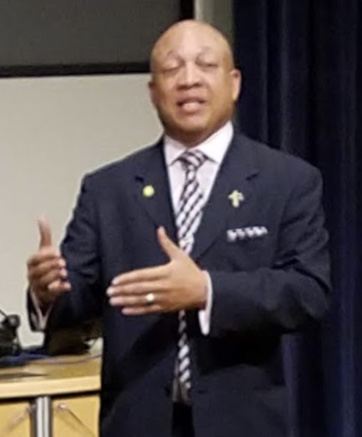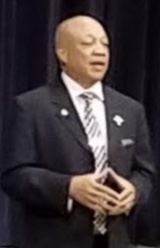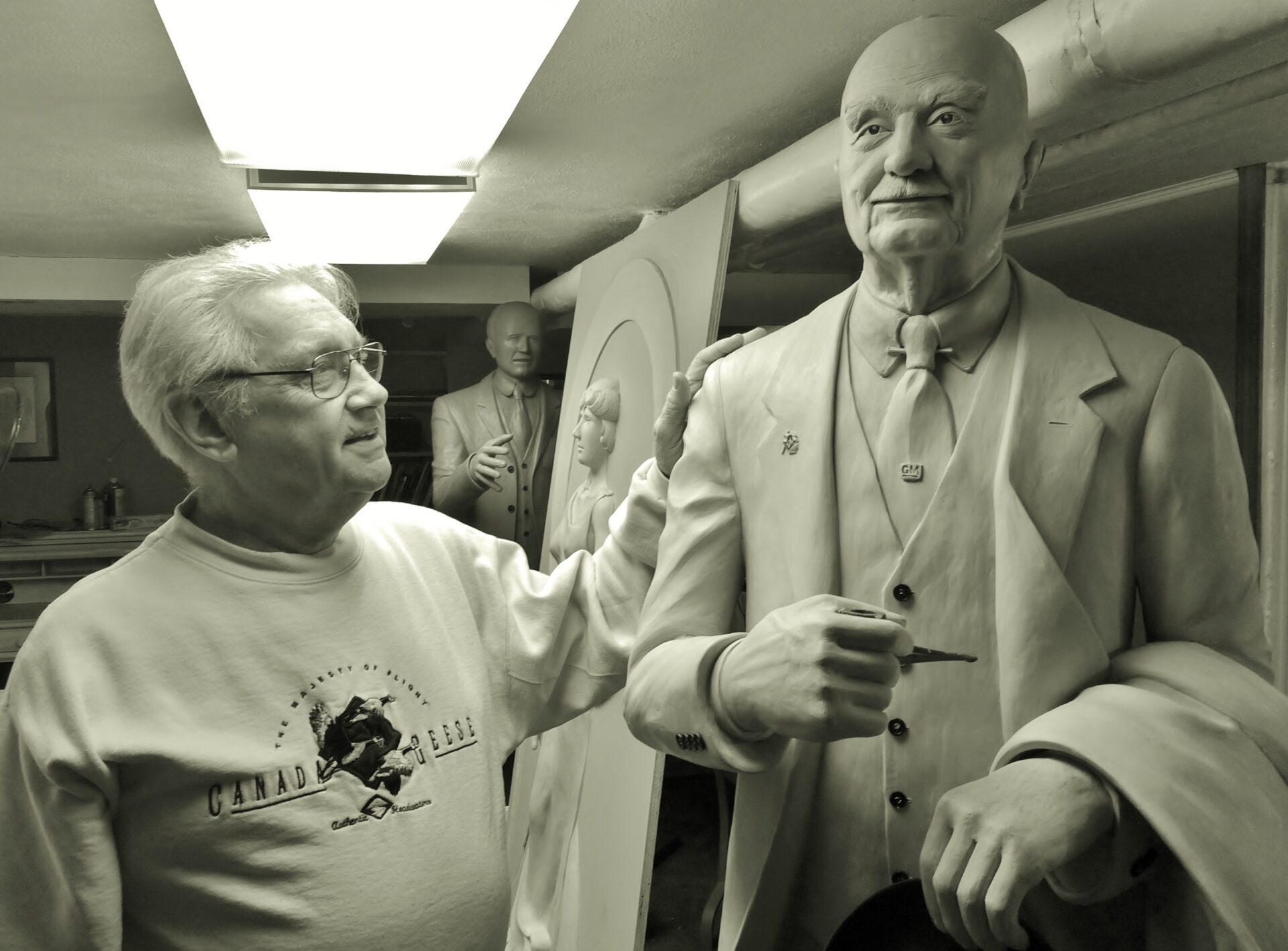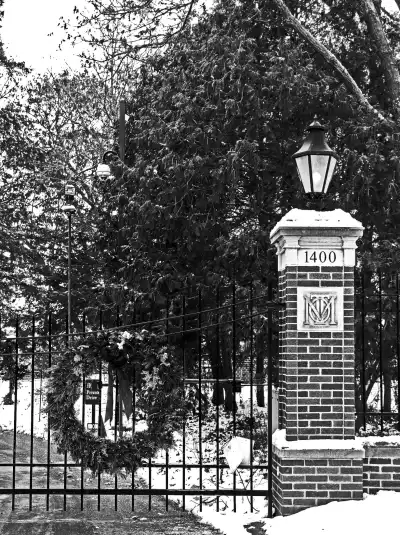EVM interviewed both candidates in the Nov. 5 mayoral election: incumbent Mayor Karen Weaver and Rep. Sheldon Neeley. We offer these stories for voters’ information and consideration. The Weaver interview can be found here. The city’s mayor will be chosen for a three-year term–Ed.
By Tom Travis
Speaking with East Village Magazine on his birthday, Sept. 20, Flint mayoral candidate Sheldon Neeley offered insight about how he would conduct his administration if he wins the Nov. 5 election. He was pressed for time and was able to grant 20 minutes on the phone for the interview.
Neeley cited that if elected, his focus would be on what he calls his “Five Points of Light” — residential, recreation, economics, education and safety.
Neeley is familiar to many Flint residents, having served as Flint’s Sixth Ward councilperson for nine years and for the last six years as Michigan’s 34th District state representative.
He could be characterized as a seasoned politician, from his years of experience holding elected offices. In his terms in the state legislature, he has served on the health policy, commerce and trade, tax policy, local government, and transportation and infrastructure committees. For the past four years Neeley has served on the legislative Black Caucus in the House of Representatives.
He’s been on the mayoral track before: 10 years ago, Neeley ran for mayor of Flint against Dayne Walling and lost.
Today, trying again, he said he wants to bring back respect and trust when it comes to the city administration working with city council and the citizens.

Rep. Sheldon Neeley (Photo by Tom Travis)
“The city administration and city council are co-equal branches of government, each with different responsibilities,” he said. “It’s important for the city administration and city council to understand we have a mandate to be followed.”
The night before, Sept. 19, Neeley spoke to about 85 residents gathered at Mott Community College for a College Cultural Neighborhood Association (CCNA) meeting. There Neeley said his administration would be populated by professionals and qualified individuals, not “friends and family.” When he spoke to EVM he clarified that what he meant was that he was not going to choose leaders and directors in his administration just because they were his friends or they went to church together — alluding to several of Mayor Karen Weaver’s appointments.
“That’s not a good way to build a government,” he said, pledging, “I will choose experienced and qualified people.”
“In our City Hall there are people who don’t deserve their positions because of their skill set,” he said, adding he will put professional people in transition within 90 days of being in office.
“We have to rebuild City Hall,” he said. “Flint residents deserve a level of consistency.”
At the CCNA meeting, Neeley stated, “We need to improve the quality of life and protect the most vulnerable. We’re on the precipice of not being a real city.”
He asserted more than $1 billion has come to this region, and said, considering that, “We should be further along.”
City Council thoughts
Neeley also talked about what his relationship as mayor would be with City Council, noting complaints about frequent chaos at the meetings from other council members and residents — in part about an abuse of parliamentary rules.
Neeley complained about the numerous “points of order, points of information” shouted out at council meetings, which he suggested often delay progress through council business.
“There is an agenda and you get through it,” he said. “The council has become divisive.” Even though he asserted the council and mayor are co- equal branches of government, he said they seem not to work together smoothly.
Regional government collaboration?
Neeley referred to “32 units of government” in Genesee County that surround the city of Flint, including Flint Township, Davison, Davison Township, Flushing, and Flushing Township. As mayor he said he hopes to work well with these other city and township governments and communities, and said he envisions collaborating on services for all of Genesee County.
Restoring, improving revenue sharing?
Another issue Neeley says he will advocate for is improvement in revenue sharing. Revenue sharing for cities creates income for the City of Flint each month.
According to the State of Michigan Treasury website, the City of Flint receives about $2.5 – $2.7 million from the State each month. According to Maxwell Evans in his article “Cities, Counties Still Losing Out on Revenue Sharing Money” March 30, 2018, “There are two types of revenue sharing: constitutional and statutory. Constitutional revenue shar- ing, funded by ten percent of the state sales tax revenues, is guaranteed.
The state constitution calls for about one-seventh of sales tax revenues to go towards statutory revenue shares. However that amount can be — and consistently has been — lowered through the Legislature’s appropriations process.”
Asked if there was any chance that the state legislature would increase revenue sharing for cities, Neeley said, “While the full amount of revenue sharing has not yet reached the full amount, it is moving in a positive direction, but it’s not where it needs to be.”
Former broadcast engineer

Neeley addressing the CCNA (Photo by Tom Travis)
Neeley said he wants to increase the dialog with citizens so that he can “clarify the direction and scope of where the city government wants to go.” He said he is committed to an “open-door policy” and will allow residents to vent comments and share concerns and input.
“We will adjust hours and communication at City Hall so that people have better communication with us all,” he said.
About that charter
Regarding the city’s relatively new charter, approved by voters in August 2017, and which took effect in January 2018, Neeley stated, “The charter is the constitution for the community — it’s not an option; it’s a mandate.
Neeley said he will look at the city’s master plan that has been developed and not yet approved by City Council to see if it fits with the city’s new charter. He said he would implement whatever parts of the charter have not been put into effect and would do it quickly, he stated. Maybe not on day one, he said, but quickly after getting elected.
Water crisis not over
Considering the water crisis in Flint, Neeley stated, “We are absolutely still in a crisis. We have not done due diligence for our residents. We must reestablish trust. Many residents still don’t drink out the tap because of a lack of trust.”
“We will answer citizens’ questions especially around water and utility issues,” he said.
Neeley said he considers himself a “people person” and believes in connecting with his constituents. He said he regularly has 27 community engagements per year including health fairs, Easter and Christmas celebrations, expungement seminars, and dental care events where he gives each child a toothbrush and toothpaste and educates them about fighting cavities and fluoride protection.
It’s all in the interest of making sure he “brings everybody into the work of government,” he said.
He said 911 calls go unreported because residents have lost trust in the public safety that they’ll even show up, and suggested people are not calling because of what he called “a lack of con- sistency in public safety,” adding, “Our officers need better support.”
“The most qualified”
Asked why Flint residents should choose him as the next mayor, Neeley replied, “I’m the most qualified and the best choice for the city. You don’t have to prepare me for the job. I have a recovery plan which includes a plan to increase and strengthen public safety in our fire and police departments.
EVM staff writer Tom Travis can be reached at tomntravis@gmail.com.








You must be logged in to post a comment.